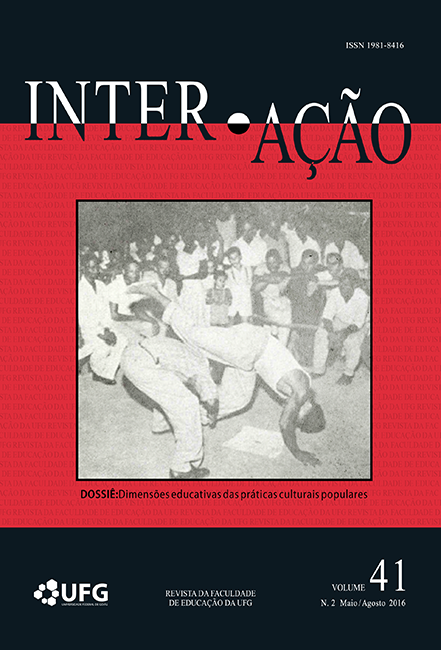APRENDIZAGENS E EXPERIÊNCIAS: A LICENCIATURA EM EDUCAÇÃO DO CAMPO DA UFMG COMO ESPAÇO DE MEDIAÇÃO ENTRE MOVIMENTOS SOCIAIS E UNIVERSIDADE
DOI :
https://doi.org/10.5216/ia.v41i2.40730Mots-clés :
Educação do Campo, Organicidade, Licenciatura em Educação do Campo, Intelectual OrgânicoRésumé
Os autores deste artigo analisam a experiência de implantação das duas primeiras turmas do curso de Licenciatura em Educação do Campo (LeCampo), da Universidade Federal de Minas Gerais (UFMG). O objetivo foi compreender os níveis da participação dos Movimentos Sociais que originaram a proposta e os processos educativos decorrentes do programa. A categoria organicidade foi o guia das análises, destacando a necessária mediação político-pedagógica dos sujeitos no projeto. Concluímos que a maior ou menor participação dos sujeitos consolida ou não o princípio educativo em projetos com foco em políticas para educação do campo.
Téléchargements
Téléchargements
Publié-e
Comment citer
Numéro
Rubrique
Licence
A Inter-Ação utiliza como base para transferência de direitos a licença Creative Commons Attribution 4.0 para periódicos de acesso aberto (Open Archives Iniciative - OAI). Por acesso aberto entende-se a disponibilização gratuita na Internet, para que os usuários possam ler, baixar, copiar, distribuir, imprimir, pesquisar ou referenciar o texto integral dos documentos, processá-los para indexação, utilizá-los como dados de entrada de programas para softwares, ou usá-los para qualquer outro propósito legal, sem barreira financeira, legal ou técnica.
Autores que publicam neste periódico concordam com os seguintes termos:
1) Autores mantém os direitos autorais e concedem à revista o direito de primeira publicação, com o trabalho simultaneamente licenciado sob a Licença Creative Commons Attribution que permite o compartilhamento do trabalho com reconhecimento da autoria e publicação inicial nesta revista.
2) Autores têm autorização para assumir contratos adicionais separadamente, para distribuição não-exclusiva da versão do trabalho publicada nesta revista (ex.: publicar em repositório institucional ou como capítulo de livro), com reconhecimento de autoria e publicação inicial nesta revista.
3) Autores têm permissão e são estimulados a publicar e distribuir seu trabalho online (ex.: em repositórios institucionais ou na sua página pessoal) a qualquer ponto antes ou durante o processo editorial, já que isso pode gerar alterações produtivas, bem como aumentar o impacto e a citação do trabalho publicado.















